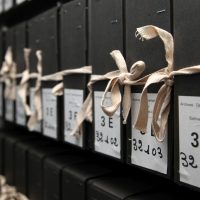How is Forensic Genealogy Different From Regular Genealogy?

Many people by now have heard of direct-to-consumer “genealogical services” companies such as Ancestry.com and 23andme. These companies offer a service, to be sure, but it is worlds apart from the services offered by qualified forensic genealogists. Below, we explain the purpose of a forensic genealogist and how their work differs from standard genealogy. Call an experienced forensic genealogist for tried-and-true assistance identifying the proper heirs to an estate.
What is Forensic Genealogy?
Forensic genealogy refers to a field of genealogical research, analysis, and reporting performed in connection with legal proceedings. Forensic genealogy utilizes family relationships, DNA matching, database mining, photo analysis, and all other available evidence in order to establish a complete family tree from the family’s past to the present.
How Does Forensic Genealogy Differ from Standard Genealogy?
Forensic genealogy is sometimes described as “reverse genealogy.” Traditional genealogy is often used to start with a living person to create a family tree going backward in time–starting with the living and going to the deceased. Forensic genealogy, on the other hand, is more likely to start with the deceased and move to the living. In connection with probate matters, for example, the goal of the forensic genealogist will be to construct an accurate picture of the deceased’s living relatives. That may involve starting with the deceased’s generation and moving forward in time, or taking several steps back up the genealogical tree to find the beginnings of a branch that stretches out to a person still living today.
Essentially, forensic genealogy takes all of the facts that can be obtained through conventional genealogy and uses them to map out a complete picture of the family tree. The forensic genealogist will then compile that information and translate it to use in legal proceedings, such as probate or criminal matters. Forensic genealogists rely on a combination of “high-tech” data such as DNA evidence and “low-tech” data such as hardcopy databases of family information to generate their picture. They use researchers and sources in locations across the globe to compile their data and produce reports that thoroughly document their evidence, reasoning, and findings. Forensic genealogy is not for the hobbyist; it is meant to generate hard, concrete reports for official reliance in legal proceedings.
If you’re an estate administrator in need of professional assistance identifying and locating missing heirs to an estate, determination of heirship proceedings, or heir research services to satisfy due diligence requirements, contact the qualified and professional forensic genealogists at Von Langen, LLC at 561-748-2936.
